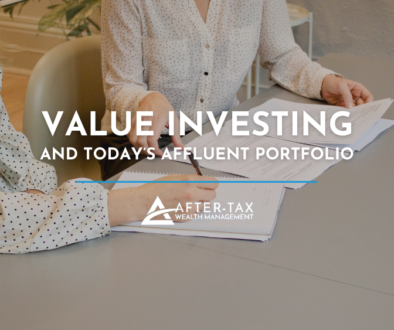Using Trusts to Manage Wealth: What Investors Should Know
Whether you manage a trust for someone else, are the beneficiary of a trust, or are thinking of creating a trust, you probably have some questions about the “best practices” of trust management. A well-managed trust can help preserve wealth for generations, while a poorly-managed trust may provide only a quick path to insolvency. How can you ensure that your trust falls into the first category?
Common Goals of a Trust
Though trusts can be designed to fulfill any number of goals, there are a few that are quite common. These include:
Wealth Preservation
If someone leaves their assets to heirs outside a trust, these assets are often liquidated and then distributed in a single lump sum. While most estates divided in this manner aren’t subject to estate taxes, providing heirs with a single lump sum isn’t always the best way to permanently improve their economic situation. In fact, the National Endowment for Financial Education estimates that about 7 in every 10 people who receive a sudden windfall will spend all the money within only 3 years.1
On the other hand, a trust requires each disbursement to be run by the trustee, who has discretion (in accordance with the trust documents) to grant, deny, or modify the request. This can prevent heirs from squandering money or falling victim to a financial scam.
Tax Efficiency
In addition to providing a limit on withdrawals, a trust can preserve wealth through tax efficiency and prudent investments. By keeping withdrawals to a sustainable amount, trustees can ensure that the principal continues to grow throughout the life of the trust. And by parceling out trust funds in smaller amounts or dividing a distribution among several tax years, trustees can ensure that the beneficiaries pay as little in taxes as possible.
What to Consider When Selecting a Trustee
If you’re pondering setting up a trust of your own, there are a few important things to take into account when selecting a trustee and providing guidance on the management and distribution of trust assets.
Find a Neutral
It can be tempting to name a family member or close friend as a trustee. However, while there can be some benefit to a trustee who personally knows the beneficiaries, having a neutral third party serve as trustee is usually the wiser option. After all, a good trustee will need to be able to make complex and sometimes emotionally-charged financial decisions, and having a family member serve in this role can dredge up old grudges or lead to discord.
Set out Clear Terms and Guidelines
One of the most helpful things any trustor can do for the trustee is to set out clear terms and guidelines for trust management and distribution. By leaving as little to the trustee’s discretion as possible, a well-drafted trust can ensure that all beneficiaries are treated equitably and that there is transparency in how distribution requests and questions of asset allocation are handled.
Important Disclosures:
The opinions voiced in this material are for general information only and are not intended to provide specific advice or recommendations for any individual. To determine which investment(s) may be appropriate for you, consult your financial professional prior to investing. All performance referenced is historical and is no guarantee of future results. All indices are unmanaged and cannot be invested into directly.
The information provided is not intended to be a substitute for specific individualized tax planning or legal advice. We suggest that you consult with a qualified tax or legal advisor.
LPL Financial Representatives offer access to Trust Services through The Private Trust Company N.A., an affiliate of LPL Financial.
All information is believed to be from reliable sources; however LPL Financial makes no representation as to its completeness or accuracy.
Asset allocation does not ensure a profit or protect against a loss.
Sources
1 https://www.cleveland.com/business/2016/01/why_do_70_percent_of_lottery_w.html
LPL Tracking #1-05014213




